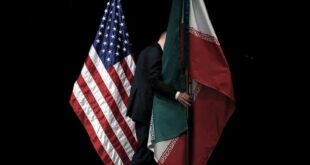Iran’s former President Seyed Mohammad Khatami Friday blasted western countries for politicizing Iran’s peaceful nuclear activities. Speaking in an interview with Kazakhstan’s Khabar TV on the sidelines of the 6th Seminar on Eurasia Media, Khatami said that Iran is a great country pursuing extensive development programs in various fields, including the energy sector.
Asked about the West’s double standards in dealing with nuclear activities of India and Pakistan on one hand and Iran on the other hand, he said Iran intends to keep its oil and gas reserves for the future generations.
“Considering that all advanced countries seek to find substitute energy resources to preserve their environment, we are also willing to make use of nuclear energy,” the Head of Iran’s Center for Dialogue among Cultures and Civilizations continued.
He reminded that Iran is a signatory of the Non-Proliferation Treaty (NPT) and all its civilian nuclear activities are carried out under the inspection of the International Atomic Energy Agency (IAEA), and reiterated the entitlement of all IAEA member states to gain access to and use of civilian nuclear technology.
Khatami also reminded that according to the NPT and IAEA rules and regulations, established nuclear states are required to render aid and assistance to other member states to facilitate their access and use of civilian nuclear technology.
He continued, “The Zionist regime (of Israel) has 400 nuclear warheads and allegedly 200 atomic bombs, while it has not yet signed the NPT and evades joining the IAEA.”
Khatami reminded that there exist three countries in the region which possess nuclear warheads while they are not even an IAEA member state.
“Therefore, the world should pressurize them instead of exerting pressure on Iran which is now about to access its legal nuclear rights,” he argued.
The former Iranian president also pointed to his country’s good relations with Russia and China, saying that the two are capable of resolving Iran’s nuclear issue through negotiations and based on the United Nations’ Charter, NPT and IAEA regulations.
“But the first condition to do so is recognition of Iran’s rights,” he continued.
Khatami further pointed to Iran’s economic potentials, natural resources and geographical significance, and underlined that if big countries realize Iran’s situation, many regional issues could be resolved more easily through talks.
 Eurasia Press & News
Eurasia Press & News


